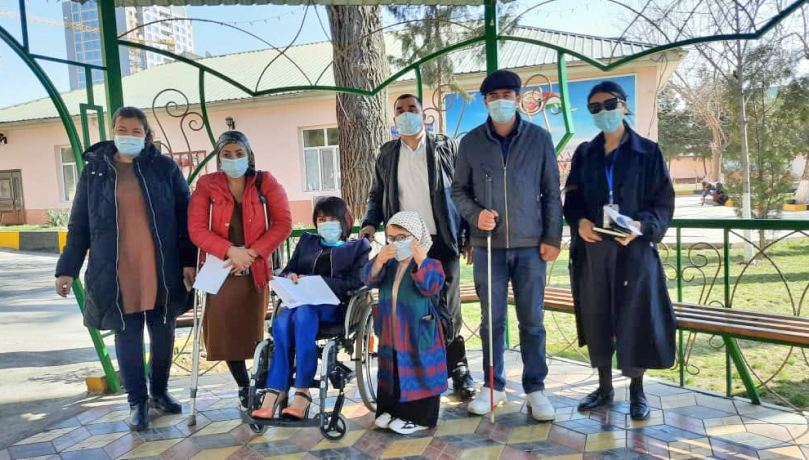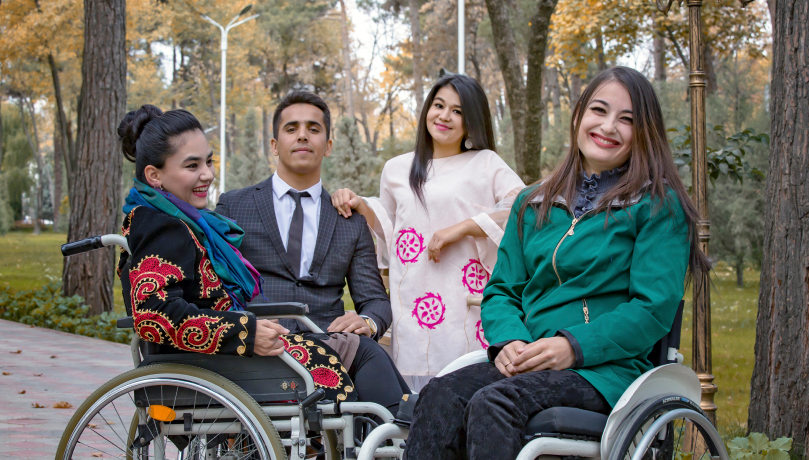Impact by Regions, Countries & Territories
UNDP’s Global Programme supports crisis-affected contexts across all regions to strengthen the rule of law and human rights. In this section, we present five regional overviews, detailing our priorities and approach depending on the context, as well as feature select country and territory results from 2021.
Five contexts from the list (Central African Republic, Democratic Republic of the Congo, Haiti, Mali and Yemen) illustrate the achievements of the Global Focal Point for the Rule of Law (GFP). In peacekeeping missions and transition settings, UNDP’s Global Programme works through the GFP to deliver integrated assistance with our UN partners.
GFP Global Focal Point Highlights
Political
Engagement
The rule of law is essential for sustainable peace and resilient economies, as well as for the prevention or recurrence of conflict. To prevent or address injustice, inequalities or democratic deficits, UNDP works with multiple stakeholders to operate in a way that is consistent with the rule of law and creates opportunities for all individuals to exercise their rights and access justice.
Institution
Building
The importance of strong institutions is more evident than ever as countries and communities respond to disruption, whether because of public health restrictions, climate change or political upheaval. Limitations on public gatherings and travel have revealed the need for institutions that are resilient to disruption.
Community
Security
2021 was a pivotal year that saw various developments affecting peace and security around the world. Civic space continued to shrink and the social contract between states and citizens was increasingly challenged, particularly during and after the response to the COVID-19 pandemic. Facing distressing consequences of climate change, states and communities are forced to manage more cross-border conflicts, triggered by the displacement of people seeking increasingly scarce resources.
Human Rights
Systems
The scope of human rights challenges is widening, from eroded public trust and shrinking civic space to ongoing inequality and human rights impacts in the socio-economic repercussions of the COVID-19 pandemic, and emerging risks in the digital sphere. National human rights institutions (NHRIs), along with other human rights defenders, are facing rising and sophisticated forms of reprisals for carrying out their work.
Access to
Justice
Sustainable Development Goal 16 (Peace, Justice and Strong Institutions) of the 2030 Agenda highlights the importance of access to justice for all for the development of peaceful and inclusive societies. Meaningful access to justice can only be achieved when people know their rights, have the opportunities, agency and capacities to claim them, and have access to independent, inclusive and people-centred justice systems that will respond in a timely, fair and effective manner.
Transitional
Justice
Without justice, there can be no lasting peace. In post-conflict, crisis-affected and fragile contexts, truth-seeking initiatives and reconciliation efforts are essential to bring peace to affected communities. The COVID-19 pandemic has slowed down transitional processes as states prioritized their response to the health crisis and measures to support the economy.
Gender
Justice
In 2021, the continued erosion of democracy and the spread of authoritarian trends in politics in many parts of the world contributed to a backlash against women’s rights. The COVID-19 crisis has reversed some of the hard-won gender parity gains by exacerbating pre-existing inequalities and power imbalances. It has also caused a dramatic increase in sexual and gender-based violence (SGBV). All these challenges have been particularly acute in conflict, fragile and crisis-affected settings.
Innovation
New ideas and new strategies are critical to building sustainable and effective development approaches that really meet people’s needs. Technologies and globalization raise new human rights concerns and threaten the rule of law. Responses to the COVID-19 pandemic continue to limit people’s access to basic services. UNDP connected expertise across the globe to learn and adapt. Creating a culture of curiosity and experimentation, these efforts ensured that local needs and expertise were combined with emerging models to bring strategic thinking to people-centred development goals.

Tajikistan
UNDP continued its support to a working group under the Supreme Court of the Republic of Tajikistan on the elaboration of a draft law on access to judicial information. With the support of UNDP, civil society organizations (CSOs) were actively engaged into the law drafting and promoted enhanced communication among courts, civil society and media. After the Law on Access to Judicial Information was adopted in May 2021, UNDP supported information sessions in all the regions of the Republic of Tajikistan on the new law. In total, 76 courts benefitted from these sessions, and 154 judges and court staff members participated along with lawyers, CSOs and media representatives.
Due to UNDP’s support, 9,446 people in Tajikistan, including 6,070 women, received access to free legal aid. Most of these beneficiaries were persons with disabilities or people belonging to marginalized groups. In addition, 228 men and 31 women benefitted from secondary free legal aid provided in 259 criminal cases. Out of the total number of 259 individuals, 12 were persons with disabilities and 41 were minors.
After Tajikistan ratified the UN Convention on the Rights of Persons with Disabilities (UNCRPD) in February 2020, UNDP embarked on an advocacy campaign to bring the national legislation in line with the Convention. UNDP worked with the state working group on UNCPRD to elaborate a roadmap for the country’s compliance with the Convention and supported organizations of persons with disabilities to design a State Programme “Accessible Environment” which was adopted in February 2021. Among other activities, UNDP supported civil society in establishing the Coordination Council on disability issues under the Parliament of Tajikistan, introduction of public advisors on disability issues under Khukumats (local governments) and provision of free legal aid to persons with disabilities.
With UNDP support and under the leadership of the Ministry of Justice, a sub-chapter on rule of law and access to justice of the Mid-Term Development Programme of the Republic of Tajikistan for 2021-2025 was elaborated. It contained 30 national indicators to track progress on SDG16 which were incorporated into the matrix of action. The Mid-Term Development Programme was approved by the Government in April 2021 and adopted by Majlisi Namoyandagon (the Lower Chamber of the Parliament) in July.
UNDP enhanced the capacities of the Ombudsperson office and supported the organization of 30 seminars and round tables for over 900 representatives of penitentiary institutions on the role of the Ombudsperson in protecting the rights of convicts and persons with disabilities, on relevant human rights mechanisms and international standards.


Key Results: Tajikistan
9,446 people (including 6,070 women) received access to free legal aid.
UNDP supported the Ombudsperson office in providing legal consultations to 290 people (including 175 women and 37 persons with disabilities).
Civil society organizations of persons with disabilities conducted awareness raising sessions in six pilot regions for 706 people (including 332 women and 374 persons with disabilities) on social rights. Out of this total number, 87% or 614 individuals, including 256 persons with disabilities, said they were empowered to claim their rights in communication with state institutions.
